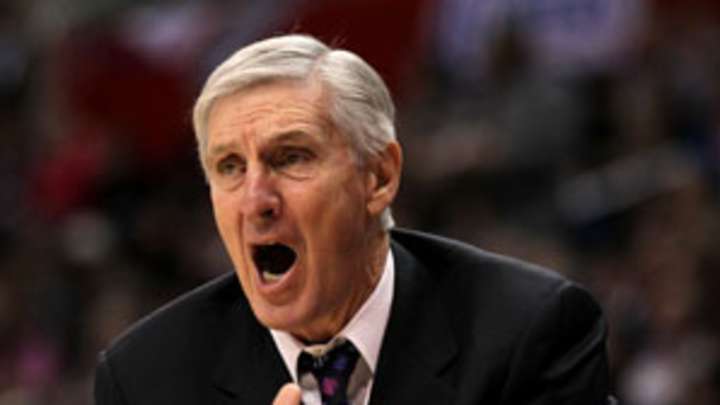After 23 years at the helm, Sloan leaves us wishing for more

Why? It's not because he signed a one-year extension with the team just days earlier. It's because something important leaves with Sloan that can never be replicated: He insisted upon -- and more often than not, produced -- excellence. The league, the game and the players all changed around him, but he remained as he had been. He taught the same system to Karl Malone (who played four years in college) and to C.J. Miles (who turned pro from Skyline High School in Dallas) and to Kyrylo Fesenko (who arrived as an 18-year-old from Ukraine).
Sloan's principles were narrow and straightforward. He insisted on hard play and team play. His offense was learned in practice, so that during the games his players could read the defense and react among themselves. Maybe he survived for as long as he did because he preached self-sufficiency and independence to young people. Of course, he was known as a disciplinarian, but his read-and-react offense was empowering to Malone and John Stockton and Stockton's replacement, Deron Williams, who didn't appreciate sitting on Sloan's bench as a rookie. But Williams cannot complain five years later, now that many rivals appraise him as the most well-rounded point guard in the NBA. Surely Sloan had something to do with that.
There are reports of confrontations between Sloan and Williams, which is almost natural considering both are stubborn and driven winners. "I've had player confrontations for as long as I've been in the league," Sloan said at a news conference Thursday. "My energy is not as high as it used to be."
It could not have helped Sloan to work for a new owner in Greg Miller -- the son of Sloan's longtime boss, the late Larry Miller -- who must be concerned with retaining Williams in this era of free agents departing for more attractive markets. The decision of assistant coach Phil Johnson to resign along with Sloan ensures that the Jazz will embark on a new era around Sloan's replacement, Ty Corbin.
Sloan was a rugged 6-5 guard from the mid-1960s through the mid-'70s, and his style of coaching was an articulation of his roots. He didn't take to excuses in this modern era that guaranteed millions to the players while diminishing the control of the locker room among NBA coaches. Salt Lake City has long been known as one of the least popular destinations for NBA players, and yet the Jazz celebrated winning records in all but two of Sloan's seasons. He was one of the few unassailable bosses in an association ruled by the players.
How is it that the loss of one coach from a league of 30 franchises weakens an entire league? The loss of Sloan has done that.
When Stockton and Malone departed in 2003, Sloan turned out to be flexible enough to win 42 games the following year with 22-year-old Andrei Kirilenko as Utah's leading scorer at 16.5 points per game. When he suffered his only losing season, its byproduct was the right to start over with Williams. This year, he had to make do without his usual starters at power forward (Carlos Boozer departed for Chicago) and center (Mehmet Okur was injured), but the Jazz still ran out to a 27-13 start.
Over the last month, however, they'd lost 10 of 14 games. On Wednesday night, Sloan decided he was finished. His reasons for leaving are his own. But there is nothing more for him to prove. The irony, after all these years spent staying the same, is that he leaves us wishing for more.
